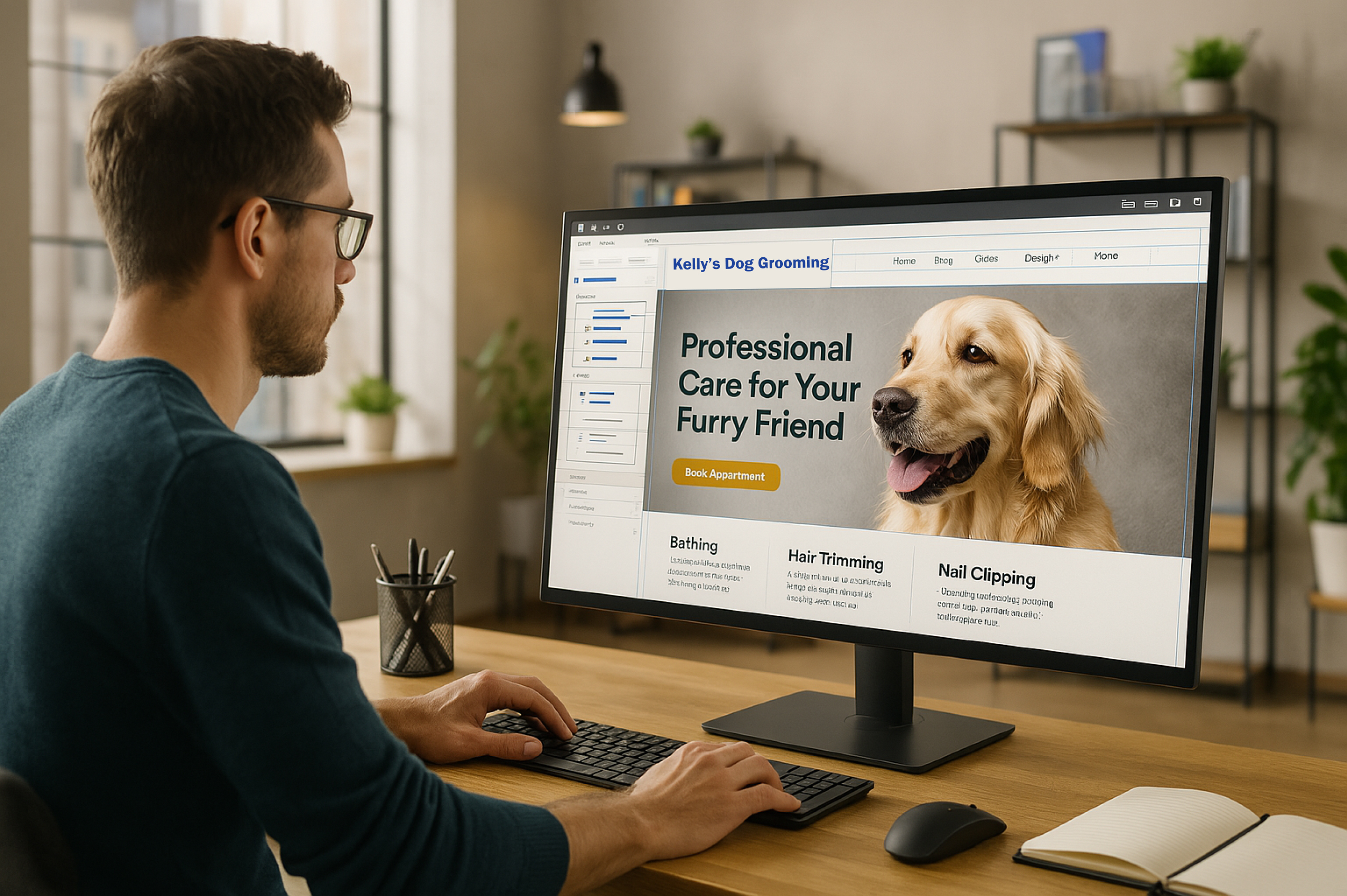
Strategic Web Design Unlocks Digital Success
Unlocking Digital Success: How Strategic Web Design Empowers Entrepreneurs and Small Businesses
Table of Contents
- TL;DR
- Key Takeaways
- Introduction
- Why Web Design Is More Than Just Aesthetics
- Understanding Your Audience: The Cornerstone of Effective Design
- The Business Impact of a User-Centered Website
- Storytelling Through Design: Building Emotional Connections
- Website Features That Drive Conversions
- Fun Fact & Expert Insight
- FAQs
- Conclusion
- Call to Action
TL;DR
A well-designed website is one of the most powerful tools for business growth. Beyond aesthetics, web design impacts trust, usability, and conversions. Entrepreneurs and small businesses can unlock their digital potential by aligning design with their brand story and user needs. Remember,
Key Takeaways
- Web design influences first impressions and conversion rates.
- Understanding your audience leads to more effective design choices.
- Storytelling in design builds brand trust and emotional connections.
- Key features like mobile responsiveness and clear CTAs boost business outcomes.
- Strategic web design bridges the gap between vision and digital success.
Introduction
In today’s digital-first world, your website is often the first handshake between you and your potential clients. For entrepreneurs and small business owners, a strong digital presence isn’t just nice to have—it’s essential. But here’s the truth: It’s not just about having a website; it’s about having the right website.
At Digibrix Web Design, we believe that strategic, user-centered design is the secret sauce to empowering business growth. Let’s explore how thoughtful design decisions can shape customer perceptions, deepen engagement, and elevate your digital success.
Why Web Design Is More Than Just Aesthetics
A visually appealing website is great—but it’s only the beginning. True design success lies in how your site functions, guides, and communicates. A strategic design should:
- Establish instant trust
- Direct attention to key actions
- Make navigation intuitive
- Support your brand story
Consider this: 94% of first impressions are design-related. That’s a massive opportunity to wow your audience—or risk losing them within seconds.
Understanding Your Audience: The Cornerstone of Effective Design
Your website should be a mirror reflecting your customers’ needs and desires. That means design must start with audience empathy:
- What are their challenges?
- What motivates their decisions?
- How do they consume content?
Answering these questions helps create experiences that resonate—and that’s where real conversion happens.
The Business Impact of a User-Centered Website
User-centered design improves:
- Engagement rates
- Time spent on site
- Lead conversions
- Customer satisfaction
It’s not just about looking good—it’s about working smart. Your site should guide visitors to action, not confuse or overwhelm them.
Real Example:
A local service business increased leads by 47% simply by reworking its homepage layout and adding clear CTAs.
Storytelling Through Design: Building Emotional Connections
People don’t just buy services—they buy stories and experiences. When your website visually and textually reflects your brand’s journey, values, and mission, visitors are more likely to trust and remember you.
Tips:
- Use compelling visuals that evoke emotion
- Incorporate your origin story and values
- Use authentic messaging that reflects your voice
Website Features That Drive Conversions
Certain features aren’t just nice—they’re essential:
- Mobile responsiveness
- Fast loading speed
- Simple navigation menus
- Clear, benefit-driven CTA (Call to Action)
- Client testimonials and social proof
- SEO-optimized content
Fun Fact & Expert Insight
Fun Fact: Did you know that it takes users only 0.05 seconds to form an opinion about your website?
Expert Insight: According to a study by Stanford, 75% of users judge a company’s credibility based on web design alone. That’s a clear signal that your website is more than just a brochure—it’s a trust-building powerhouse.
FAQs
What is the most important part of web design for small businesses?
Clarity and user experience. A clean, intuitive layout guides users naturally toward taking action.
How often should I update my website design?
Every 2–3 years or when your business goals shift significantly.
Can a well-designed website really increase my revenue?
Absolutely. Strategic design improves user flow, reduces bounce rates, and increases conversions—directly impacting revenue.
What makes Digibrix Web Design different?
We focus on blending authenticity, storytelling, and strategy to create sites that connect with your audience and convert effectively.
How do I get started?
Simple—just head to our Get Started page and let’s bring your digital vision to life.
Conclusion
Your website is more than a digital brochure—it’s your most powerful marketing and engagement tool. With the right design, you’re not just building a website—you’re building trust, impact, and growth.
Call to Action
Ready to elevate your online presence and connect authentically with your audience? Get Started Today with Digibrix Web Design and unlock your digital potential.
